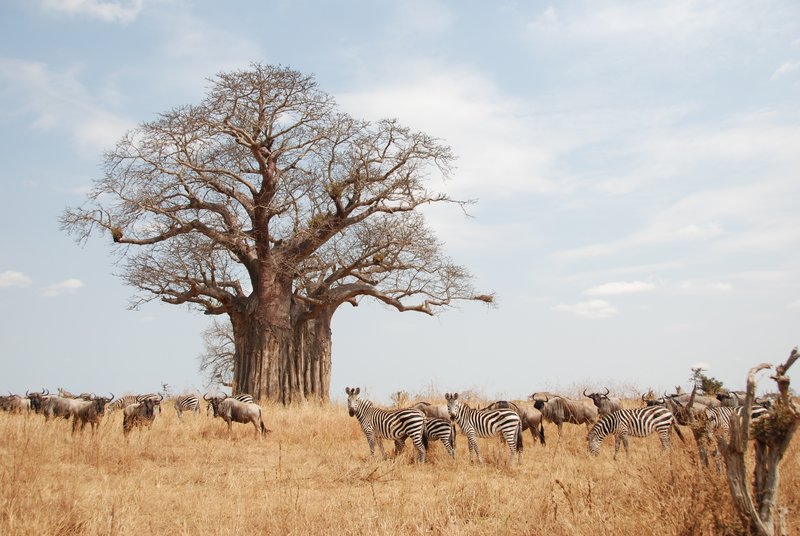This project is made possible through the partnership of WATER CHARITY and the NATIONAL PEACE CORPS ASSOCIATION. ![]()
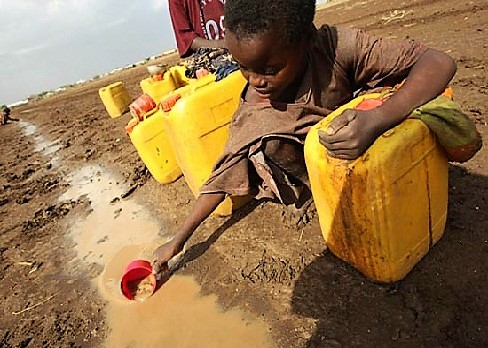 Location:
Location:
Simanjiro district, Manyara region, north-central Tanzania
Problem Addressed:
Simanjiro is a semi-arid district of some 185,000 people south of Mount Kilimanjaro and the Arusha region. Most of its inhabitants – 85% Masasi, plus some Bantu groups – are pastoralists. There are constant water shortages, and it is not uncommon for women to get up in the middle of the night and walk for as long as nine hours to fetch water from ponds or shallow wells, where the water is shared with cattle. The water is unclean, with constant outbreaks of waterborne illnesses, particularly typhoid, bacterial dysentery, and, before the rainy season, cholera.
Project Description:
Community Life Amelioration Organization (CLAO – Mwanza, Tanzania), with the enthusiastic support of local government authorities, plans to train six groups of 10 people, mostly Maasai, from six different wards in Simanjiro. Three groups will be mixed (male/female) and three groups all-women, with the 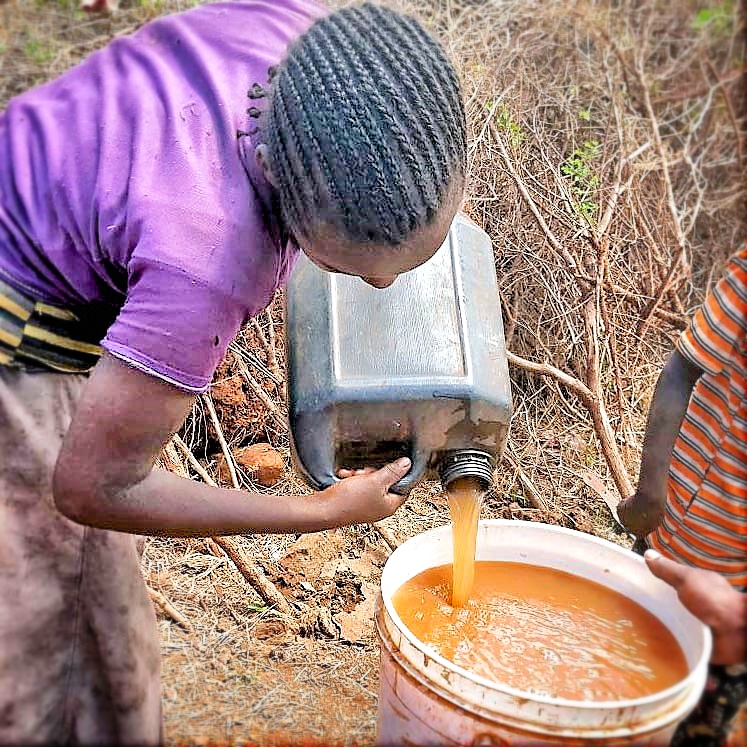 idea of comparing their effectiveness in fabricating and distributing BioSand filters.
idea of comparing their effectiveness in fabricating and distributing BioSand filters.
The six groups with ten beneficiaries from each of the six wards will be trained and provided with starting materials. Participants will be trained on the fabrication, installation, distribution and maintenance of BioSand water filters. Also, education on water, hygiene, and sanitation will be provided, as well as basic skills in keeping records, financial management, and basic business planning.
Project Impact:
This project will be beneficial to 60 community members from 6 wards (each ward, 10 participants) of Simanjiro District; 30 of them will be women who will form 3 groups among 6 groups. The actual number of beneficiaries will grow exponentially as the filters, clean water and knowledge of how to build them are spread. It is possible the reach of this project could extend to 10’s of thousands of people eventually.
Among the expected results, in addition to reducing waterborne illnesses, is increasing school attendance (many children miss school because of waterborne illnesses), and the community’s capacity to engage in other economic activities. Once better health is achieved, CLAO hopes to move forward by training groups to build rainwater catchment/Ferro-cement tank systems, reducing ‘the long walk to water’. This will become increasingly viable once local authorities have experienced a successful partnership to improve the lives and health of their constituents.
There will be an increase in knowledge regarding hygiene and sanitation, as well as the importance of clean drinking water. Enhanced job creation and self-employment will reduce the burden on family members and the government in general through improved living standards. 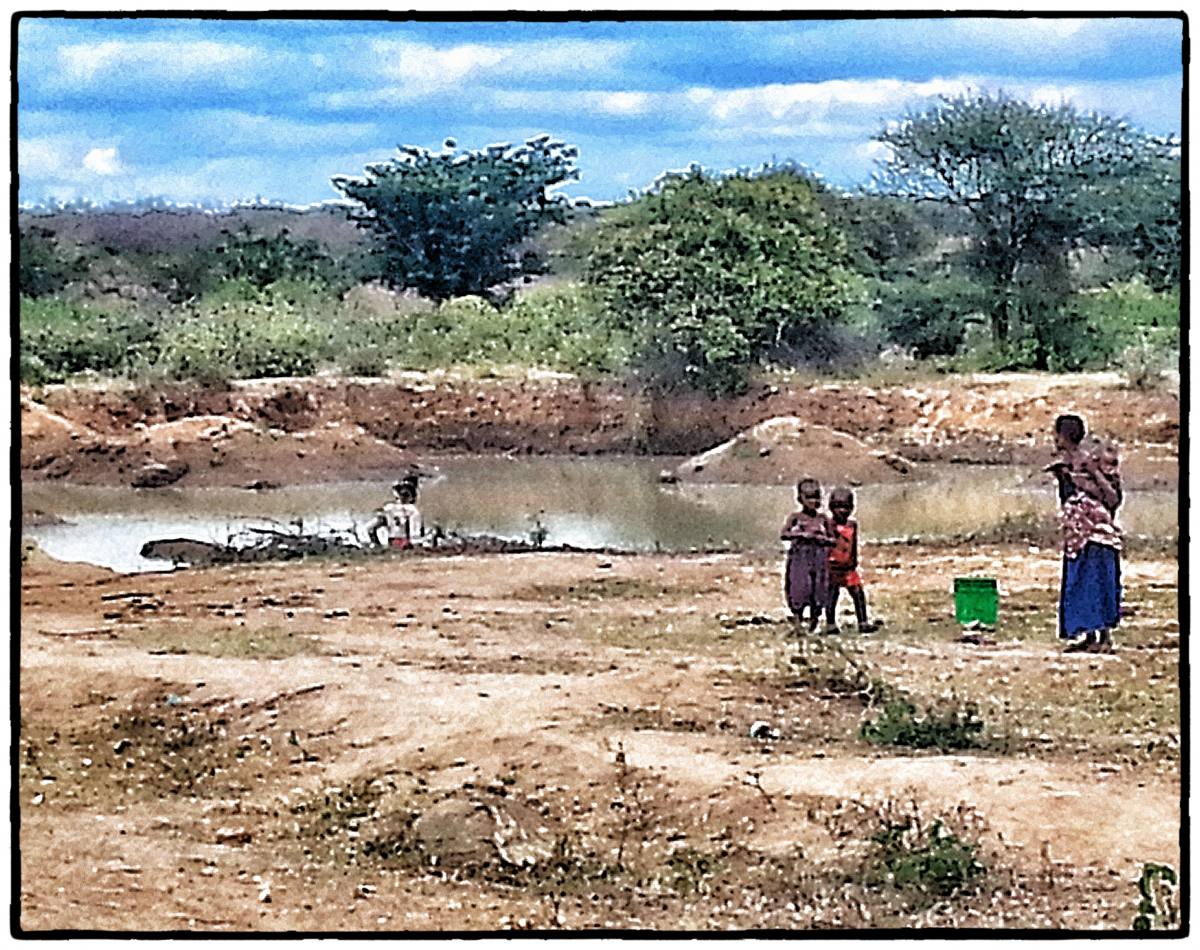 Enough income will be generated to start other small projects. The disease burden will be reduced. The district will experience economic growth.
Enough income will be generated to start other small projects. The disease burden will be reduced. The district will experience economic growth.
Person Directing:
Robert Kennedy Mahili and Obed Gidion, leaders of CLAO, will direct the training. They both have extensive experience in the field. They will be joined by Friendly Water for the World’s treasurer Ginny Stern, who is currently in Tanzania with the Tanzanian Teaching Fund.
Monitoring:
In collaboration with local authorities, group leaders, and the CLAO team, a communications plan will be established to ensure the flow of information among groups trained and trainers for technical support, challenges, and progress of the project. Each group will have a trained monitor. CLAO representatives will meet with each group after 90 days, to evaluate progress, and make necessary modifications to the business plans.
Budget Details:
| No | Item description | Quantity | Unit price $ | Total price $ | Funder |
| 1 | Steel molds | 12 | 550$ | 6600$ | WC |
| 2 | Set of toolkit | 6 | 450$ | 2700$ | WC |
| 3 | Mold Transport | 1 | 250$ | $250 | WC |
| 4 | Set of Starter material | 6 | 250$ | 1500$ | WC |
| 5 | Certificates | 60 | 3$ | 180$ | WC |
| 6 | Printing manual | 60 | 4$ | 240$ | WC |
| 7 | Trainers honorarium | 4 | 300$ | 1200$ | Participants contributions |
| 8 | Trainer Transport | 1 | 300$ | 300$ | WC |
| 9 | Trainees transport fees | 60 | @5$×60×5 day | 1500$ | Local authority |
| 10 | Trainer accomm, food, communication | 4 | @30$×4×6 days | 720$ | WC |
| 11 | Participants lunch and tea | 60 | @6$×60×5days | 1800$ | Local authority |
| 12 | Venue | 1 | 50$×5 days | 250$ | Local authority |
| 13 | Training materials (flip sheet, pens, notebooks) | FF | 350$ | 350$ | WC |
| 14 | Monitoring and evaluation | FF | 400$ | 400$ | WC |
Expected Results
Short-term
– This will increase the knowledge of the trained members and the community in general on hygiene and sanitation
– Knowledge of the treatment of water before drinking will help to reduce water-related diseases
– Education on the Consequences of using unsafe water and the benefits from using clean water will lead to health improvement
– Knowledge of job creation and self-employment to participants will reduce the burden on the family members and government in general hence improving the living standard
Long-term
– Start of small projects in order to increase their incomes.
– Reduction of unemployed people in Simanjiro district and Tanzania in general.
– Reduction of diseases from unsafe water by distribution Bio Sand water filters.
– Contribution to the community’s economy and the whole country in general.
– Increased number of people with access to clean water.
– The economic growth of the District since people will be healthy.
Sustainability
From the profits of this project, trained groups will invest in other different businesses and they will keep providing clean water to the community via BioSand water filters distribution. On the contrary, the idea will be sold to other NGOs working in and out of Simanjiro district to adopt and distribute the idea to those who have no access to water.
UPDATE: Simanjiro, Tanzania Filter Training
Footage of dancing and jubilation concluding our training. Full conclusion report to be posted soon!
This training was completed, and these Maasai communities are now producing water filters at a very good rate. Furthermore, this is having the (expected) good results on the health and general wellbeing of the region that we find whenever filtration of water sources becomes standard practice.
SIMANJIRO GROUPS PROJECT UPDATE
Erick Reports:
Description
Simanjiro groups is the name given to the six Maasai groups trained in Biosand water filter construction in November 2017. The groups have a total number of 109 members.
The groups were trained in water hygiene and sanitation, fabrication of bio-sand water filters, installation, maintenance, and marketing.
This report covers what we have achieved, planned activities that we have not achieved, when to achieve them, challenges faced and the way forward.
The planned activities on implementing the project went as follows: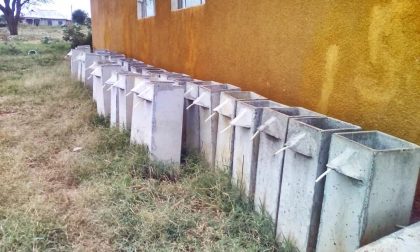
- Public community awareness on bio-sand water filters on human hygiene and sanitation
All the six groups namely Namnyaki Group, Juhudi group, Naberera group, Chapakazi Group, Njoro Women Group, and Mshikamano Group initiated the community movement of having clean water to the Maasai people which has been greatly supported by the government. This campaign helped them in implementing their project through making the community aware of Biosand water filter as a cheap and easy method of having safe and clean water for a low cost, this campaign was done jointly under the supervision of village health officers.
- Filters fabrication and installation
At the time of this report, the groups have successfully managed to fabricate and installed filters as follows:
| No. | Name of groups | Fabricated filters | Installed filters |
| 1. | Namnyaki Group | 358 | 321 |
| 2. | Mshikamano Group | 284 | 278 |
| 3. | Njoro Women Group | 521 | 459 |
| 4. | Naberera group | 104 | 96 |
| 5. | Chapakazi | 232 | 223 |
| 6 | Juhudi | 139 | 134 |
| Total | 1638 | 1521 |
These numbers will continue to grow exponentially as the technology spreads, more training are conducted, and more molds and tools are purchased to ramp up the production efforts.
- Achievements/ success
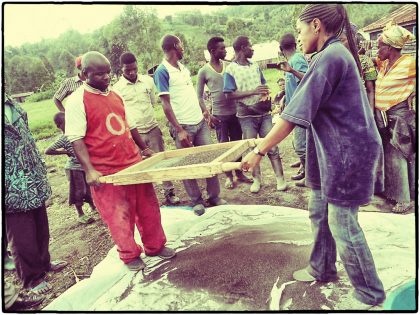 Through this new technology which has brought a positive impact to the community and indeed has changed the lives of some families that managed to get the filters. The achievements are as follows:
Through this new technology which has brought a positive impact to the community and indeed has changed the lives of some families that managed to get the filters. The achievements are as follows:
- All the 60 people who participated in the training received the filters.
- Three filters have been installed at Endarok kindergarten pre-school
- Health improved among all the Bio sand water filter users’ families, by comparing the epidemiological questionnaire filled during the training that was shown that 98% of the people attending the hospital every month were due to water-related diseases. The new epidemiological questionnaire filled showed that after starting using the bio-sand filter only 16% of the bio-sand user attends the hospital for that case, and this 16% may perhaps be improper uses of the filters. Therefore ClAO directs the group’s leaders to make follow-up on that in order to understand the reasons behind that.
- All the government schools order to have the filter the order that was paid by the local government, the local government made a payment of 1000 filters to all schools. The order was divided considering the number of schools available in a certain location
- The project turned out to be permanent job opportunities to most of Maasai women and this makes them contributes much to their family’s income
- The group succeeded to contribute 25000$ (half of the money paid by the local government order of 1000 filters to school) to the construction of community water harvesting tank that will be used to collect up to 6 million liters of water when finished
- Through this project funded by FWFW the Njoro women group have managed to open a small shop of selling animal’s food that helps them to generate more (we are likely to see the shop is moving up as their planned)
- Challenges faced
Apart from all they achieved, the project faces several challenges as follows,
- Lack of enough water during washing sands for installation during drought season, the distance of collecting water from the lake is very long to collect water.
- Lack of proper means of transportations, this makes more filters broken during transportations (cows and donkey are their popular means of transporting filters)
- Lack of projector that will attract more Maasai society to view our work /project and creates more market as well as bio-sand water filters beneficiaries
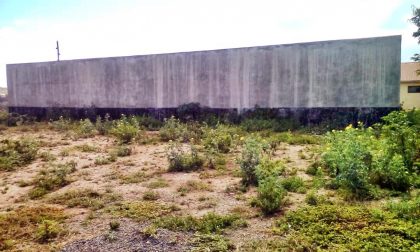
- Way forward
- The groups have planned to continue with public community campaign awareness and making fabrication of more filters as well as installing to the community.
- The groups are looking for more markets of filters and sponsors who will help them the money to complete the local tank that will help them to have constant and enough water all the time.
Suggestions from group members:
- There is a need for Maasai women to be equipped with other small projects such as soap making, micro flush toilets, poultry projects, vegetable garden goat and milk cow projects are great projects that will also increase their income even if by a loan that will be repaid back after four-month installation.
Project Funding:
This project has been funded through the generosity of a donor who chooses to remain anonymous.
